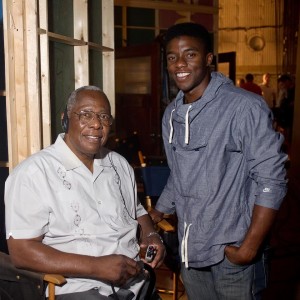As a second grader, I called the only black man I knew at the time the “n-word.” Yep. Just blurted it out. He was my P.E. teacher, and when he called me out at first base, I slurred him.
Thankfully, Mr. Cooley was true to his name. He calmly set me out of the game. No trip to the principle’s office. No paddling. No rebuke. No retribution. Although I was just a kid, I knew I had stolen something from this perfectly kind, gentle man.
I just watched the movie 42 and was inspired by Jackie Robinson’s bravery. But I was also sobered by the bigotry of so many ordinary, everyday kind of people who thought they were on the right side of the issue.
As a Southern, white, Jesus-following pastor, I would like to think racism is behind us. I would like to think the attitude that spewed out of a second grade boy is not simmering in the hearts of God’s people.
But that may be wishful thinking. I was not only inspired by the story of Jackie Robinson on the big screen, but I was reminded of some very important lessons that impact how we love our neighbors.
People are people.
The Bible tells us we are created in the image of God. Red and yellow, black and white, they are precious in His sight. But the ideological framework for racism is rooted in the belief that non-whites are a separate class of humanity or perhaps less than human altogether. What we think of people and how we treat people are theological issues. What believe about God and His Word determines how we love others.
There is just one race.
God created Adam and then He created Eve (Genesis 1:27). He did not create a European race, an African race, an Arab race, and an Asian race. He created the human race. All of us have unique qualities, but the cultural or social distinctions between ethnic groups are the result of a sinful, self-righteous heart from which we must repent.
Racism in any form is sin.
We do not write “whites only” on the restroom doors anymore, but we still build barriers between us. We claim to be protecting our borders, our kids, or our property values, but in the end, it’s just good ol’ 1940’s bigotry. Loving our neighbor means that legitimate Christians will oppose any political or social policies that support any form of bigotry. And it means we will walk across the street or across town to serve and help those who are oppressed by seeds of discrimination that continue to germinate.
Racism comes to church.
It is subtle. And we know better than to say racist things. But our poor track record on reaching new neighbors, on transitioning our ministries, and on making disciples of every nation, tribe, and tongue reveals a heart problem. Perhaps we are intimidated by people who look differently than we do. Perhaps we gravitate to people who were raised like we were raised. Perhaps it is just natural to flock with birds of our own kind. But by the grace of God, He has called us to something bigger and better than our natural predispositions.
The Gospel destroys racism.
God gave His one and only Son because He loves the peoples of the world (John 3:16). Jesus moved toward and died for the people we often run away from. The Cross not only reconciles us to God, but it is the basis for our reconciliation with each other (Ephesians 2:16). The Gospel breaks down the dividing wall of separation. So Gospel people do not build walls. We build bridges because Jesus has redeemed us from the separating power of sin.
Battles won must still be fought.
When Pee Wee Reese put his arm around Jackie Robinson at first base in Cincinnati, they laughed about the fact the Civil War had been fought and settled. Although black slaves where free after the war, blacks and whites were still divided decades later. As long as sin settles in the hearts of men and women, the people of God and the church of the Lord Jesus must be the prophetic voice of reconciliation to this generation and the next.
I am grieved when I remember that day on the kick ball field with Mr. Cooley. If a second-grader could say that, who else felt free enough to mock him, ridicule him, and discriminate against him in 1979? I don’t know if I ever told Mr. Cooley I was sorry, but I am.
This article is an updated repost from April 15, 2013.


Great article..timely…thanks for posting.